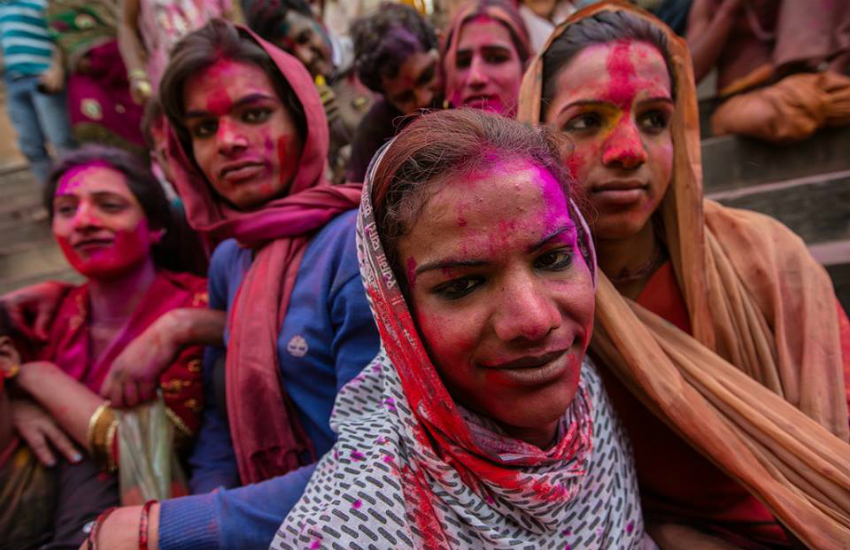Transgender Indians celebrate Holi festival with colorful powder (Photo: Facebook)
Despite a major win for the LGBTI community in India, transgender people are still vulnerable.
On 6 September, India’s Supreme Court ruled that a law making gay sex illegal was not constitutional. It scrapped elements of colonial-era Section 377 of the Penal Code. Therefore, much of the LGBTI community celebrated.
Since then, however, India’s transgender population have said violence against them continues. Transgender women in India’s capital, Delhi, accuse police of beating and raping them.
‘The policeman pick us up and disturb us frequently’, one Kinnar in Delhi says in a video shared by LGBTI group Nazariya last week. ‘They beat us up, use offensive language with us, and have sex with us [without consent]’.
Kinnar is a third gender in India. They take the name from a mythological being. Similar to Hijra throughout South Asia, Kinnar may be transgender women, intersex, or simply Kinnar.
As they are shunned by their families and communities, many Kinnar survive by begging or performing ceremonies. India recognized transgender as a third gender in a landmark ruling in 2014.
‘The trans community especially has been facing immense hardships from the police personnels irrespective of [dismantling] 377’, a Nazariya representative told The Citizen.
The group is currently working to secure legal help for the victims of police abuse.
‘We want JUSTICE, we are also human beings, it’s God who made us the way we are’, another woman in the video says.
‘I don’t see much progress’
Section 377 of the Indian Penal Code punished gay sex with up to 10 years in prison. Campaigners have tried to abolish a colonial-era law since the 1990.
Since the judgement, activists have warned the transgender population is still at risk.
‘Consensual sex between two adults has been decriminalised but this in no way takes away the vulnerabilities of transpersons’, said Rachana Madraboyina. Madraboyina is the founder of Telanaga Hijra Transgender Samiti.
India still criminalizes transgender people, she said. A bill to protect the rights of transgender persons was languishing in parliament, she argued.
What’s more, she said, the dismantling Section 377 would not protect transgender Indians from violence at work or in relationships.
‘It is a good beginning but on the ground we face these difficulties every day’, she said.
Somya, a transgender activist and politician, welcomed the decriminalization. Along with 2014’s third gender ruling, it was a ‘really strong weapon for us’.
But, Somya warned, ‘at the level of implementation, I don’t see much progress’.







